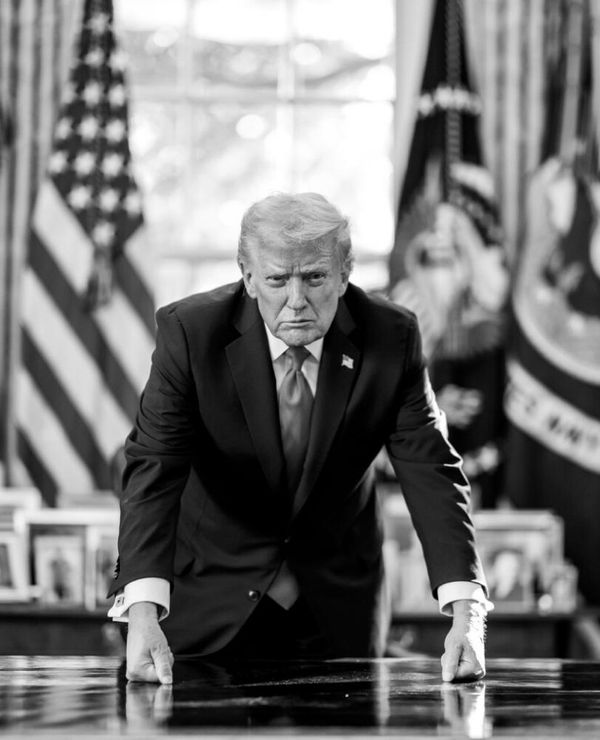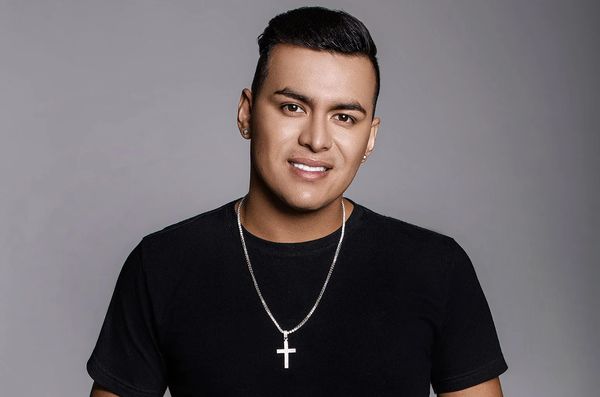
Some of Melbourne’s most beloved live music venues say they will shut their doors for the final time within months, after operating at a loss because of density restrictions with no end in sight.
On Tuesday, The Curtin, which has been a cornerstone of Melbourne’s live music scene for decades, announced its future is uncertain beyond November, as the building freehold is to be sold.
The Curtin news follows a concerning trend for live music fans, with Sydney venues The Lansdowne, Old 505 Theatre and Giant Dwarf all announcing they were closing within a week of each other earlier this month.
Now several venues in Melbourne, including The Butterfly Club, Old Bar and The Leadbeater, are joining together to demand the state government review Covid density restrictions in Victoria and provide a date for when they will end. They say they need a lifeline or they will have to close their doors.
“This city is going to be a car park,” says Paris Martine, booker at The Curtin. “This is basically what we’re doing. You can see the ‘for sale’ sign on the front of the pub.”

Because of the Omicron wave, Victorian music venues were placed back under capacity restrictions on 6 January, with a limit of one person per two square metres in all indoor areas in hospitality venues. It’s not clear when this will be lifted and venues say they are running out of time.
“The margins on live music are so tiny,” Martine says. “Basically, you rely upon your sold-out gigs to carry you through on the gigs that are actually smaller, which means you can’t take risks on booking lesser-known artists.”
Without restrictions, Martine would be able to sell 200 tickets to a gig at The Curtin, but is only allowed to let in between 100 and 130 at the moment. Now if a show doesn’t sell out, they bleed money.
“It’s not even viable,” she says. “You are opening up to turn over probably about $2,000 if you’re lucky … When you start getting down to those kinds of numbers, you’re opening knowing that you might lose money that night.”
In November the Victorian government announced it would “reignite the state’s live music” scene with $8m in funding. But Martine says while she is sure “they will see that money” eventually, it hasn’t arrived yet and the situation is urgent.
“We’ve all been on restrictions, devastating restrictions that are impacting our ability to survive,” she says. “And we haven’t seen a cent.”
She questions why thousands of people could mosh at the Sidney Myer Music Bowl, or how people could be allowed to work out inside a gym at full capacity, but they couldn’t have 200 people at The Curtin.
“If we’re open enough for a major event of 10,000 to 30,000 people to go ahead, there is no justification of one person per two square metres,” Martine says.
On Wednesday, a Creative Victoria spokesperson defended the funding rollout, saying it was underway and would provide 160 venues with grants.
“Creative Victoria has worked closely with the music industry since the onset of the pandemic, and we continue to support our live music sector,” the spokesperson said.

For bands busting to play after two long years of lockdowns, opportunities are still few and far between.
Loretta Miller from Melbourne band Jazz Party says the scene has already dried up in Sydney and she doesn’t want to see Melbourne follow suit.
“We used to play shows in Sydney, we can’t really get them much any more. There are no venues to play at. It’s a really hard city to crack,” Miller says. “I don’t want Melbourne to be that. That’s terrifying to me. Because what do we do then? There’s nowhere to play.”
Jazz Party played their first show in a year last week, at an outdoor venue in regional Victoria. Their performances pay for the livelihoods of the nine members of the band, their booker and manager.
“We released an album six months ago, which we’re launching in two weeks, which may or may not go ahead,” Miller says. “That’s my full-time job, that’s what I do.”

Cash Savage, who leads Cash Savage and the Last Drinks, says this summer was the quietest they have had since the band started in 2008.
“It’s out of control. It’s deads-ville for us,” Savage says. “We’re recording an album in summer, which would normally be bananas but there’s not really anything else to do.”
Simone Pulga, director of Melbourne venue The Butterfly Club, is also struggling with the density restrictions.
“Unlike every other time we’ve been under restrictions, this time, there is no key indicator as to when we are going to be coming out of them,” Pulga says. “There are some venues that have six weeks left in the bank before they need to make some very unpleasant decisions. Some might have three months. This is bad.”
The federal member for Melbourne, Adam Bandt, is calling on the government to intervene before the city loses any more venues.
“If the Covid restrictions are staying, then live music venues and musicians need support to weather the storm,” he says.
His state colleague, MP for Melbourne Ellen Sandell, who represents the seat The Curtin sits in, has accused the government of “ignoring the sector”. This week she wrote to the treasurer and creative industries minister, asking them to urgently provide extra support for smaller live music venues.
“What an incredible shame it would be to lose live music from Melbourne just because the state government hasn’t listened to the industry about what they need,” Sandell wrote.
On top of a review of density restrictions, Melbourne venues are asking for a plan that includes lifeline funding if restrictions come back as well as the reintroduction of the Live Music Roundtable, which facilitates dialogue between the industry and government ministers.
Pulga says the state government has not consulted with small- to medium-sized venues since October last year.
“There is no rule of nature that says that Melbourne must have a healthy music scene,” he says. “It took decades for it to build, for the expertise to build, for the people to gain the skills. Once it’s gone, there is nothing that says it is going to come back.”







